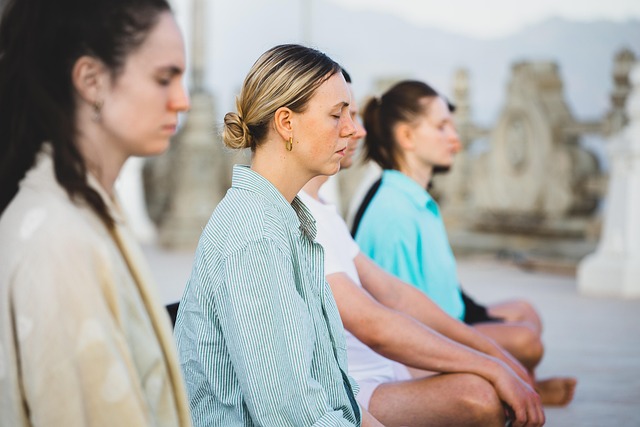When we talk about meditation, the first thing that often comes to mind is a quiet room, a soft cushion, and a moment of silence. Yet the practice extends far beyond a single session. It is a set of principles that weave together body, mind, and spirit, creating a holistic framework that supports personal growth, inner beauty, and emotional resilience. In this article we explore how meditation principles can nurture the soul, deepen spirituality, empower self‑education, enhance skin health, and stabilize mental wellbeing. By understanding the core tenets and applying them consistently, you can transform everyday life into a continuous meditation practice.
The Core Tenets of Meditation Principles
At its heart, meditation is built on a few foundational ideas. Recognizing these principles is the first step toward integrating them into daily life.
- Presence – The practice of anchoring attention in the current moment, allowing sensations, thoughts, and emotions to arise without attachment.
- Non‑Judgment – Observing experience without labeling it as good or bad, which cultivates equanimity.
- Compassion – Extending kindness toward oneself and others, fostering a sense of interconnectedness.
- Patience – Accepting that transformation unfolds over time, and that each breath is a step in that journey.
- Consistency – Regular practice, even if brief, builds a strong foundation for lasting change.
When these principles are practiced deliberately, they become a compass that guides all aspects of life, from learning new skills to caring for your skin.
Mindful Presence and Spiritual Connection
Spirituality is often described as the quest for meaning beyond the physical realm. Meditation principles ground this quest in the present moment, revealing the subtle ways in which the soul interacts with everyday experience. By attending to breath, heartbeat, or the sensation of feet on the floor, we cultivate an awareness that transcends the fleeting thoughts of the mind. This awareness invites a deeper sense of purpose and opens the heart to a broader perspective of existence.
“The quieter you become, the more you can hear the soul’s whispers.” – Unknown
When you practice presence, you notice patterns of thought that no longer serve you, and you let them dissolve. This quieting of mental noise creates a fertile ground for spiritual insights to surface, whether they come in the form of gratitude, awe, or a sense of unity with all living beings.
Using Meditation Principles for Self‑Education
Learning is not just an intellectual endeavor; it is a dynamic process that engages body and mind. Applying meditation principles can make learning more efficient and enjoyable.
- Set Clear Intentions – Before starting a study session, spend a minute visualizing what you hope to achieve. This aligns your attention with a specific purpose, reducing the tendency to drift.
- Pause Between Topics – A brief breathing pause after completing a section acts as a mental reset. It consolidates information, improves recall, and prevents overload.
- Reflective Journaling – Write a short note about what felt clear and what remained fuzzy. Use non‑judgmental language to maintain curiosity rather than frustration.
- Integrate Movement – Gentle stretches or walking meditation between study blocks help release tension and keep the nervous system balanced.
- Night‑time Review – End the day with a five‑minute mindfulness walk, summarizing the day’s learning. This reinforces memory and signals closure to the brain.
These simple techniques turn the act of studying into a mindful practice, enhancing focus, retention, and overall enjoyment.
From Mind to Skin: Meditation’s Beauty Benefits
Our skin reflects our inner state, and meditation principles play a subtle yet powerful role in skin health.
- Stress Reduction – Chronic stress elevates cortisol, which can accelerate aging, cause breakouts, and disrupt barrier function. Meditation lowers cortisol levels, allowing the skin to heal and regenerate.
- Improved Circulation – Breath‑focused practices enhance blood flow, delivering oxygen and nutrients to the dermal layers, which supports a vibrant complexion.
- Balanced Hormones – Regular meditation stabilizes the hypothalamic‑pituitary‑adrenal axis, mitigating hormonal swings that often trigger skin issues such as acne or eczema.
- Mindful Habits – By cultivating presence, you become more aware of your skincare routine. You can notice when you skip a step, overuse products, or neglect hydration, allowing you to adjust with intentional care.
- Emotion‑Triggered Skin Care – When you practice non‑judgment, you notice emotions that may manifest as physical symptoms. Addressing the root cause reduces the need for reactive skin treatments.
Incorporating a short mindful pause before applying makeup or moisturizing can help you connect with your skin’s needs rather than simply following a script.
Meditation Principles and Mental Health
From depression to anxiety, mental health challenges often stem from a disordered internal dialogue. Meditation offers a toolbox to re‑educate this dialogue.
1. **Reframing Thoughts** – When a negative thought surfaces, observe it without attachment, then gently shift focus to a breath or a physical sensation. Over time, this reduces the intensity and frequency of rumination.
2. **Emotional Regulation** – Regular practice strengthens the prefrontal cortex, which governs impulse control. The result is a calmer reaction to stressors and a greater capacity for resilience.
3. **Sleep Quality** – Mindful breathing before bedtime quiets the nervous system, making it easier to fall asleep and to enjoy deeper stages of REM and restorative sleep, which are essential for mood regulation.
4. **Self‑Compassion** – Compassionate meditation fosters an internal environment where self‑criticism is replaced by gentle understanding. This shift is often pivotal in breaking cycles of shame or self‑blame.
5. **Community Connection** – Group meditation or guided sessions cultivate a sense of belonging. Feeling connected to others mitigates loneliness, a common trigger for depression.
Practical Daily Rituals Combining All Five Areas
Below is a sample routine that interlaces meditation principles with learning, skin care, and mental health practices. Adjust the timing to fit your schedule.
- Morning Anchor (5 minutes) – Sit in a comfortable posture, focus on breathing, set an intention for the day. Write a single word that encapsulates your goal.
- Mindful Breakfast (3 minutes) – While eating, notice colors, textures, and flavors. Avoid multitasking; let the meal become a meditation.
- Learning Block (30 minutes) – Study a topic, pause after each section for a 30‑second breath break.
- Skin Care Pause (2 minutes) – Before washing face, close your eyes and take three slow breaths, visualizing a clean, healthy barrier.
- Mid‑day Reset (5 minutes) – Stand, stretch, and observe the sensations in each limb. Ground yourself by feeling the floor beneath your feet.
- Evening Reflection (10 minutes) – Write in a journal: what went well, what you learned, and what you felt. Finish with a short breathing practice to release any residual tension.
Following a consistent pattern like this embeds meditation principles naturally into every facet of your day, turning routine actions into opportunities for growth and healing.
Embracing the Journey: Long‑Term Impact of Meditation Principles
In the long run, the cumulative effect of practicing meditation principles manifests in profound ways. Research consistently shows that individuals who meditate regularly experience reduced anxiety, improved immune function, higher levels of self‑awareness, and a greater sense of purpose. These benefits translate into tangible changes: clearer skin, more focused learning, and a calmer, more compassionate outlook on life.
Importantly, meditation is not a quick fix. It is a lifelong partnership with yourself. The principles—presence, non‑judgment, compassion, patience, and consistency—serve as compass points. Even on challenging days, a simple breath or a moment of presence can reset the trajectory, allowing you to align with your deeper values.
As you continue to weave meditation principles into your everyday routine, you’ll find that the boundaries between spirituality, self‑education, beauty, and mental health blur. Each domain supports the others, creating a harmonious whole that feels alive, balanced, and deeply connected to your inner self.
Final Thoughts
Meditation principles are not abstract concepts; they are actionable tools that you can apply right now. Whether you’re aiming for a radiant complexion, a sharper mind, or a serene soul, the practice of presence, non‑judgment, compassion, patience, and consistency offers a reliable path forward. Commit to one small step today, and watch how the ripple effects expand across every area of your life.




